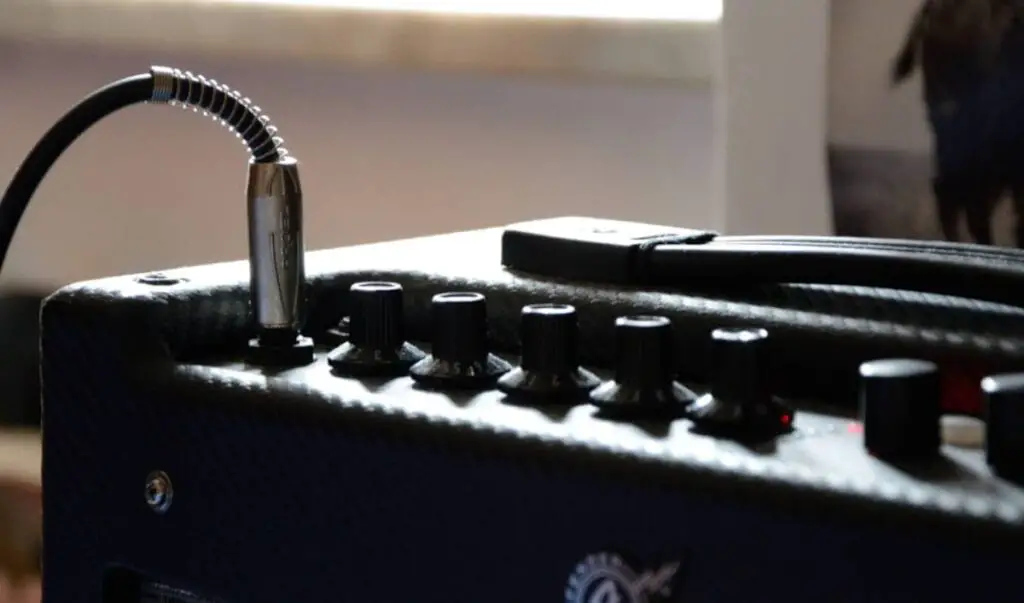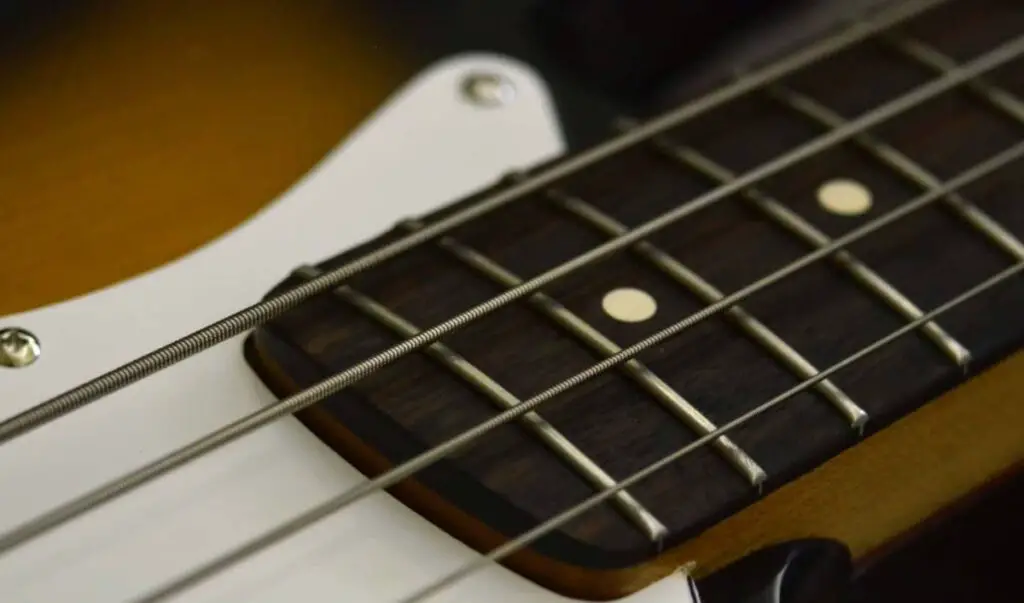As bassists, we will all experience our basses starting to hum sooner or later. When there is a buzz while you’re not even playing your bass, it can be especially annoying. So where did this buzz come from, and what should you do when your bass hums when you’re not touching the strings?
A bass can produce a hum without the strings being touched for a multitude of reasons. Most commonly it is a grounding issue, meaning the wiring in your bass has become loose. Other possible reasons are a faulty amp, a non-grounded electrical socket, or interference from radio frequencies.
Luckily, you can fix this hum by yourself without much issue most of the time.
Before we start thinking of fixing the buzz we need to diagnose what causes it though. While there are several possibilities, finding the root cause is usually a swift procedure.
Why does my bass guitar hum?
Below is a list of what can cause a bass to hum when you are not touching the strings.
When reading about these options consider when the humming began. This will make it easier for you to make an educated guess at which of these causes is most likely to be the cause of the buzzing:
- Grounding issue in the bass – Metal conducts electricity by allowing free electrons to move between its atoms. As all the metal components in your bass are connected, this also means that they can all conduct electricity to one another. If a component such as a wire inside your bass loosens, this results in other metal parts no longer being properly connected to one another. This is called a grounding issue and is a common cause of the type of hum you are experiencing.
- Fault or lack of grounding in outlet – If the outlet that your amp is plugged into is faulty or ungrounded, this could be producing a buzz.
- Single coil pickups – Single coil pickups are great at picking up sound and are most notably used in Fender Jazz basses. Unfortunately, single coils can also pick up external noise from screens, fluorescent lighting, and wi-fi signals which can all produce a hum.
- Gain – You might simply have turned your gain too high up.
- Radiowave Interference – Radiowaves can be picked by your bass. This could produce a hum, and it can also result in your bass picking up radio stations.

Diagnosing what is causing your bass to hum without touching the strings
Now you know some of the reasons why your bass might be buzzing when you’re not touching the strings. If this didn’t give you a clear idea of what is causing the static sound from the bass, let’s continue by diagnosing what the source of the sound is:
- Do a continuity check with a multimeter – A multimeter is a device that’s used to check if electricity can move from one wire to another without a break by performing a continuity check. Remember how all the metal parts in your bass conduct electricity with one another? By checking whether electricity can move between different strings and from your bridge to your output, you can tell if you have a grounding issue or not. The multimeter will have a continuity check mode and will either show a 0 or produce a sound when there is continuity. If you don`t have a multimeter, you can get one off Amazon here.
- Check if your outlet has grounding or not – Grounded outlets have 3-prongs in American countries, while ungrounded outlets have 2. In European countries, grounded sockets have one or two metal hooks/plugs in them. If it only consists of two holes and a screw, it is non grounded
- Change your pickups and gain – Turn your gain completely off, and try every combination of pickups you have available to you. If you notice the hum changing you can quickly isolate which pickup is causing it.
- Change your location – You can find out if the buzz is caused by radiowaves by simply moving a bit. Move your amp and guitar to a different room in your house and see if the hum persists.

How do you stop a Bass from humming?
Hopefully, you were able to diagnose the issue with the help of the above steps. If the hum is still persistent, choose the appropriate solution below:
- Fix the grounding issue in your bass – If your bass didn’t pass the continuity check you performed with the multimeter, you have a grounding issue. Unplug your bass and open the electronic cavity of it to check for any loose wires. If you cannot immediately find which part is loose, use the multimeter on different parts in the cavity of the bass to see which parts are able to pass the test. You should also check under the bridge for a loose ground wire and test the input jack. Do so until you find a part that doesn’t pass the test. Then reattach it if possible, if not, you will have to resolder it. If you are uncomfortable with soldering the parts back together or are unable to find the root of the problem here, I advise taking your bass in for repair.
- Try a different outlet or amp- If your socket is faulty or ungrounded, you can solve this by using a different socket. Just make sure that this socket is grounded. If this doesn`t fix the issue, try a different amp. If this solves the issue your amp will need to be repaired or replaced. However, you now know that your bass is working just fine.
- Use two single-coil pickups or none at all – If the hum stops when your turn off your single-coil pickup, you can simply use a different pickup. If you have a bass with two single-coil pickups, you can elect to use both as the disturbance will cancel itself out. Alternatively, you can shield your bass. Single coil pickups commonly have this problem as there is a lot more electromagnetic interference today than when they were first made.
Conclusion
Potentially opening your bass up and fixing wires can seem intimidating, but there really isn’t that much to it.
By following the steps in this guide you can understand, diagnose and fix the hum that your bass is making, without having to take your bass in for repair. This will save you both time and money.
Related reading: Is the action on your bass too low?
If you are not able to fix the issue using these steps, take your bass to a music shop. In general, there will be skilled people available that can help you fix the humming issue.
If you end up getting external help, remember to mention the steps you have followed in this guide. This will simplify their job, and make it easier to isolate and fix the cause of the issue.

